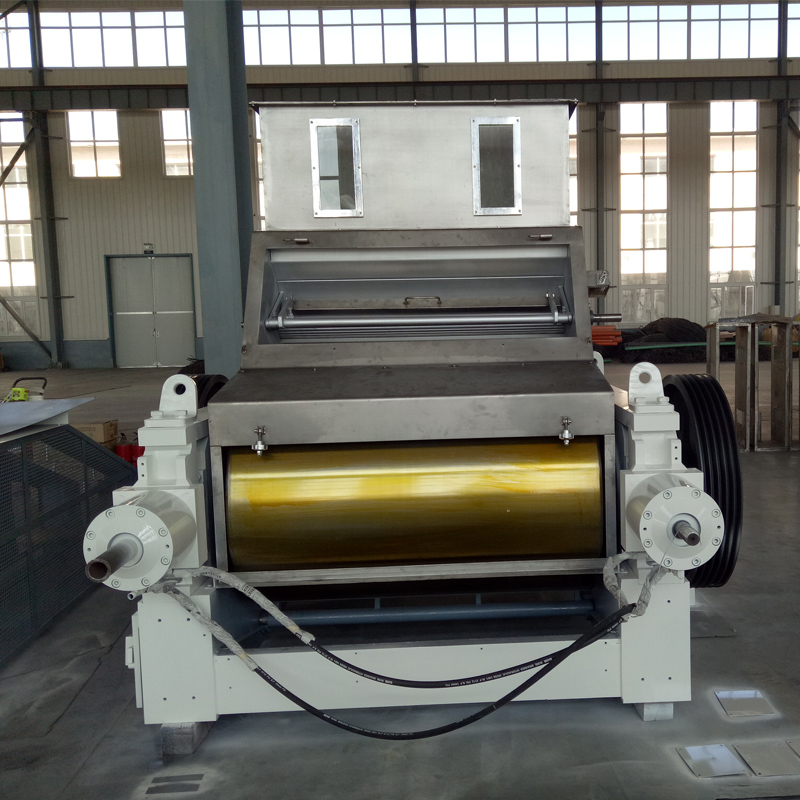តុលា . 15, 2024 01:05 Back to list
Suppliers of Animal Oil Refining Equipment and Solutions for Industrial Applications
Animal Oil Refining Unit Suppliers An Overview
The global market for animal oil refining has experienced significant growth over the years, driven by the increasing demand for high-quality animal fats and oils across various industries, including food, cosmetics, pharmaceuticals, and biodiesel production. As businesses seek reliable suppliers for animal oil refining units, understanding the key players and technologies involved is crucial.
Animal fats have been utilized for centuries and are derived from the processing of animal carcasses, primarily poultry, cattle, and swine. These fats serve numerous purposes, from cooking and baking to being key ingredients in beauty products. The refining process is essential to ensure the oils are free from impurities, contaminants, and unwanted odors. This is where animal oil refining unit suppliers come into play, providing the necessary equipment and technological solutions.
Key Components of Animal Oil Refining Units
1. Extraction Equipment The first step in refining animal oil involves extracting the fat from the raw material. Suppliers offer a range of extraction technologies, including mechanical pressing and solvent extraction. Mechanical presses typically yield higher-quality oils, while solvent extraction can maximize oil yield but may introduce impurities that need further refining.
2. Degumming and Neutralization Once the oil is extracted, it undergoes degumming to remove phospholipids and other impurities. This process prepares the oil for further refining. Neutralization follows, where free fatty acids are removed, improving the oil's stability and flavor. Suppliers offer specialized equipment that efficiently handles these stages.
3. Bleaching This stage is crucial for removing pigments and discoloration. The bleaching process uses adsorbents to purify the oil. The effectiveness of this step is vital in determining the final product's quality, making it essential for suppliers to provide advanced bleaching systems.
4. Deodorization After bleaching, deodorization is performed to eliminate any lingering odors. This process is essential for products intended for consumption, as unwanted flavors can affect the end-user experience. Suppliers often use steam stripping techniques to achieve high-quality deodorization.
5. Fractionation Some suppliers also provide fractionation equipment, allowing processors to separate different components of animal fats based on melting points. This process enables the production of tailored oils that meet specific market demands, including high-melting point fats for certain applications.
animal oil refining unit suppliers

Choosing the Right Supplier
When selecting a supplier for animal oil refining units, companies should consider several factors
- Reputation and Experience A reputable supplier with a proven track record in the industry can offer significant advantages, including technical support and a more reliable supply chain.
- Technology and Innovation The refining process is continually evolving, with new technologies emerging to improve efficiency and environmental sustainability. Suppliers that invest in research and development to offer state-of-the-art solutions can provide competitive advantages.
- Customization Options Different businesses have unique needs. Therefore, a supplier who can customize equipment or processes to fit specific requirements will be more valuable in the long run.
- Support and Service After-sales support is crucial in ensuring ongoing operations. Suppliers that offer comprehensive training, maintenance, and troubleshooting assistance can help minimize downtime and maximize production efficiency.
- Compliance and Sustainability As sustainability becomes a key concern in global markets, suppliers that adhere to stringent environmental regulations and provide sustainable processing solutions will be more appealing to modern businesses.
Conclusion
The demand for animal oil refining is poised to grow as industries increasingly seek alternatives to vegetable oils and look for high-quality fats that can enhance their products. The role of animal oil refining unit suppliers is fundamental in this transition, providing the necessary technology and support to meet the evolving needs of the market. By understanding the components of refining units, the benefits of choosing the right supplier, and the latest trends in sustainability, businesses can navigate this dynamic landscape effectively. As the market continues to evolve, suppliers who prioritize innovation and customer-centric solutions will be well-positioned to thrive in this competitive sector.
-
High-Efficiency Peanut Oil Refined Machine for Quality Oil Production Leading Exporters & Companies
NewsJul.08,2025
-
High Efficiency Sunflower Seed Oil Press – Leading Cooking Oil Press Machine Factories & Suppliers
NewsJul.08,2025
-
High-Efficiency Soybean Oil Press Machine – Leading Exporters & Reliable Companies
NewsJul.07,2025
-
High-Efficiency Seed to Oil Extractor – Reliable Extraction Machinery for Your Business
NewsJul.07,2025
-
High-Quality Pressing Screw of Oil Expeller for Efficient Oil Extraction Leading Exporters & Manufacturers
NewsJul.06,2025
-
High-Efficiency Essential Oil Extraction Machine Trusted Exporters & Companies
NewsJul.06,2025
